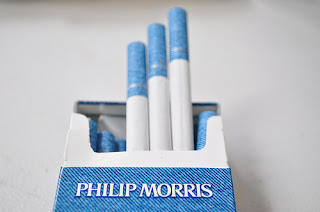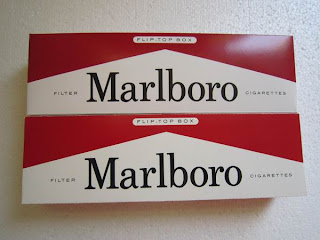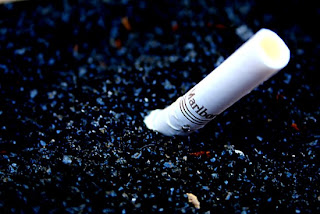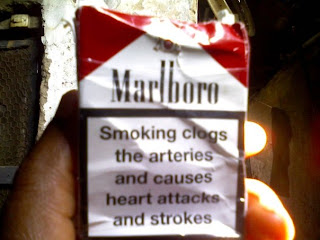
Leading cancer, asthma and heart health experts accused the Dutch government on Friday of "all but closing down" its tobacco controls and said such lax policies could lead to 145,000 preventable deaths by 2040.
In a letter to The Lancet medical journal, specialists from Europe, the United States and Canada said new Dutch policy moves -- including weakening smoking bans in bars and ending the reimbursement of quit-smoking aids -- would inevitably cost lives.
"Every death that ensues would not just be the responsibility of the tobacco industry, which continues to promote its lethal product, but also a government that looks the other way under the disingenuous banner of 'personal choice' and allows this to happen," the experts wrote.
Smoking causes lung cancer, which is often fatal, and other chronic respiratory diseases. It is also a major risk factor for cardiovascular diseases, the world's number one killers.
The World Health Organisation (WHO) predicts that tobacco will kill nearly 6 million people worldwide this year, including more than 600,000 non-smokers who will die as a result of exposed to second-hand smoke. By 2030, it predicts that tobacco could be killing 8 million people a year.
The experts writing in the Lancet said the Netherlands had fallen out of step with the rest of Europe, and far behind countries like Australia and Uruguay where governments have taken tough action to curb the reach of the tobacco industry.
Authorities in the Netherlands, where the smoking rate is relatively high compared to other Western countries, have already relaxed existing smoke-free laws by saying they need not apply to small owner-run bars.
The Lancet letter said the government was now set to reverse a decision giving smokers who want to quit access to treatment and help.
Florence Berteletti Kemp, director of the Brussels-based Smokefree Partnership and a signatory to the Lancet letter, accused the Dutch government of "turning its back on science and on proven best practice".
"The strategies being adopted...will lead to more disease and death," she said in a statement as the letter was published.
A Dutch government spokesperson was not immediately available for comment.
Geoffrey Fong of the University of Waterloo in Canada, who also signed the Lancet letter, said Dutch policies were also out of line with the WHO's Framework Convention on Tobacco Control, an international agreement signed by more than 170 countries -- including the Netherlands -- aimed at
curbing tobacco use.
"The Dutch government is reducing the information available to consumers, refusing to introduce graphic pack warnings, and reducing assistance for smokers who want to quit," Fong said, accusing policymakers of "leaving smokers to their fate, which has been strongly determined by the highly addictive products of the tobacco industry."
Cigarette packs in the Netherlands carry warning signs saying Smoking Kills but not photographs illustrating the dangers of smoking.
Earlier this year, a Dutch study called SimSmoke2 projected the effect of tobacco policies on smoking rates and future premature deaths and found that without effective tobacco controls, almost a million lives would be cut short in the Netherlands due to smoke-related diseases between 2011 and 2040.







